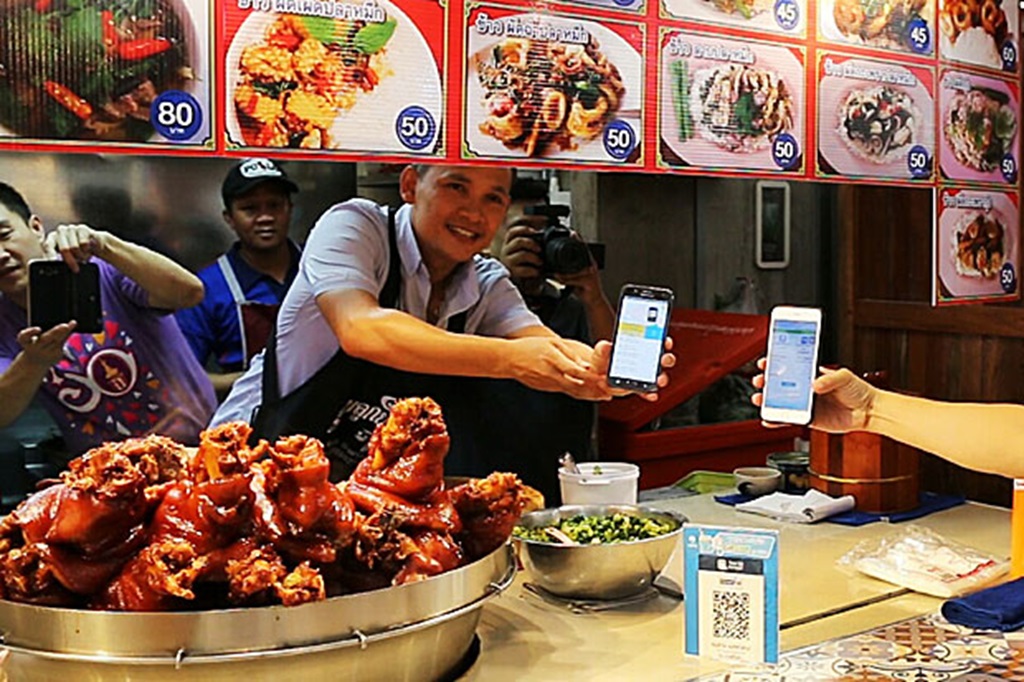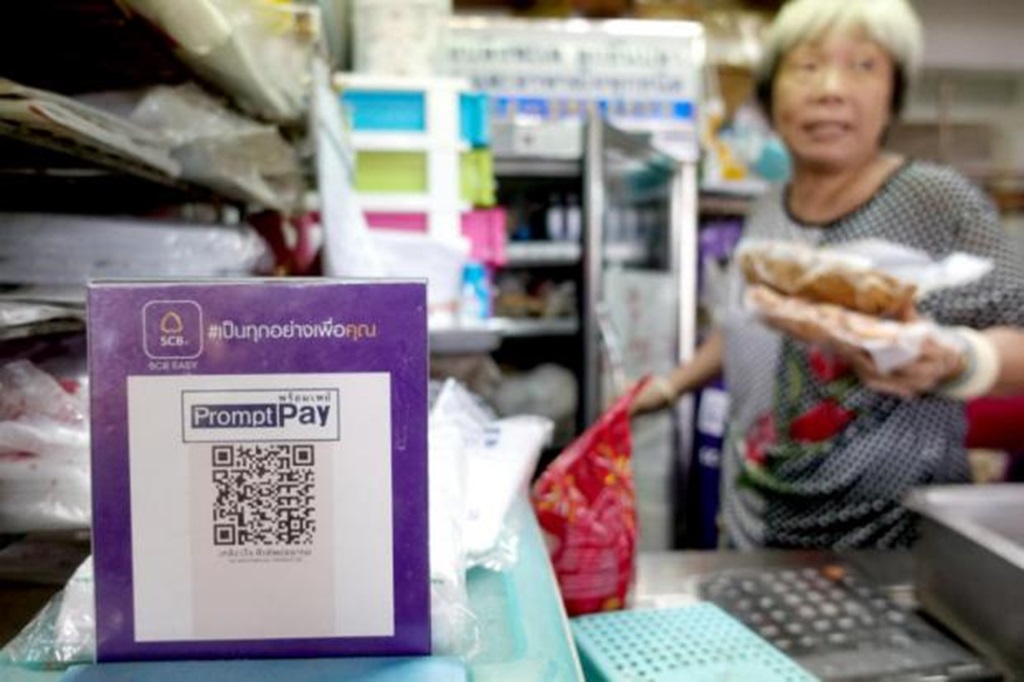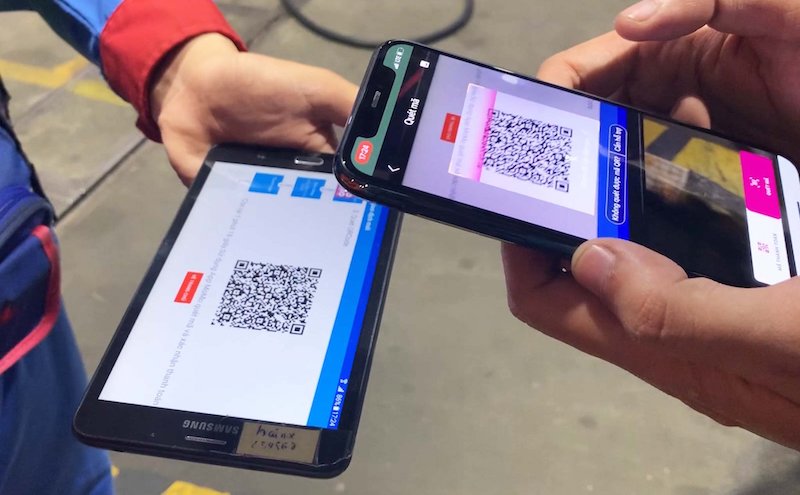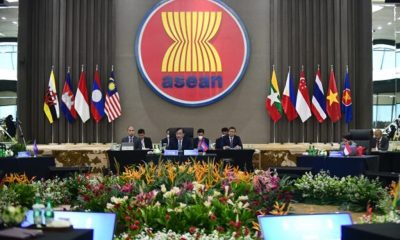Business
PromptPay QR Payment Slowly Moving Thailand to a Cashless Society

Thailand is rapidly becoming a cashless society, thanks to the growing acceptance of digital payment methods like PromptPay, QR payment and mobile banking apps have grown ubiquitous, allowing customers to easily make transactions and transfer payments using their cellphones.
The government’s push for a digital economy with PromptPay, along with the simplicity of cashless transactions, has accelerated the transition.
Businesses around the country have adopted cashless payment methods to cater to tech-savvy customers and streamline operations. QR code payments and contactless card readers are commonplace, from street food sellers to luxury malls.
This practice accelerated during the COVID-19 pandemic, when cashless payments reduced the risk of virus transmission.
Financial transactions using PromptPay, Thailand’s national electronic payment platform, reached a new high last year, while cash transactions fell sharply.
In December 2023, the total number of financial transactions using PromptPay Thailand reached a high of 75.9 million per day. According to the Bank of Thailand’s Payment Insight report, daily money transfers via the platform averaged 54.5 million last year, totaling 130 billion baht.
The average ticket size for money transfers under 5,000 baht declined to 510 baht each transaction in December, down from 570 baht per transaction in January of last year.
According to the report, the decrease in average ticket size is due to the country’s improved financial inclusion and broad usage of PromptPay as a normal payment platform among individuals.
PromptPay QR Payment Transactions Increasing
PromptPay registrations totaled 77.2 million as of December of last year. PromptPay usage has increased significantly since its debut in 2016, notably during the pandemic. According to the survey, digital payments among Thais have increased dramatically in recent years as the country transitioned to a cashless society.
In 2023, the average number of digital payment transactions per user was 538, up from 135 in 2019. The surge was ascribed to the adoption of internet and mobile banking channels, with accounts from these channels totaling 136 million in 2023, up from 89.5 million in 2019.
Similarly, digital payments like PromptPay International conducted through e-money services have expanded in recent years. In 2023, there were 117 million e-money accounts, up from 82.5 million in 2019. According to the research, cash withdrawals averaged 2,118 per person in 2023, down from 2,414 in 2019. Cash withdrawals in value terms fell to 24,835 baht per person per year in 2023, from 32,977 baht in 2019.
According to the survey, the number of cash withdrawals at ATMs made using mobile banking capabilities rather than an ATM card increased between 2018 and 2023.
Cross-border QR payment linkage
In a similar development, the Bank of Thailand and the Bank of the Lao People’s Democratic Republic have established a cross-border QR payment linkage, allowing for friction-less transactions between Thailand and Laos.
The initiative also covers Cambodia, Vietnam, Malaysia, Indonesia, Singapore, Hong Kong, and Japan.
The Asean Payment Connectivity initiative intends to develop digital payment systems between Thailand and regional countries in order to boost trade, investment, tourism, and the use of local currencies.
However, the shift to a cashless society is not without its obstacles. Concerns about data privacy, cybersecurity threats, and the digital divide persist. Providing fair access to digital payment options, particularly for the elderly and those living in rural regions, is a priority.
Nonetheless, Thailand’s cashless revolution is well started, transforming the country’s financial environment and laying the groundwork for a more efficient, contemporary economy.
Prompt Pay Thailand is a government project that ensures timely payment for goods and services provided to governmental entities. It requires agencies to pay vendors within seven days of receiving accurate invoices and paperwork.
This helps small enterprises sustain cash flow and alleviates financial constraints. Non-compliant agencies face fines.
By Geoff Thomas




































